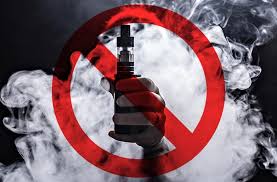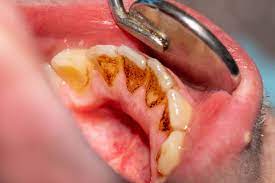
Vaping has become popular over the last decade, but most people aren’t really sure if it has risks or not. Because of that, there’s a lot of misinformation out there – and because of the Internet, this can spread like wildfire without anyone knowing whether or not it’s true.
There have been dozens of studies looking at the effects of vaping, and we can use those to examine how vaping affects your health in the long-term. This comprehensive look at vaping will tell you all about what potential risks there are, and whether you should be worried about them or not!
Vaping has been around since the 1960s, but in recent years, it’s become one of the most popular ways to consume marijuana and other substances thanks to its perceived health benefits compared to smoking traditional herbs and tobacco.
There’s still much we don’t know about vaping, however, so this blog post will take you through the most important research on vaping risks and safety so you can make your own informed choice.
What is vaping?
Vaping is the process of inhaling and exhaling the vapor produced by an electronic cigarette or similar device. Unlike smoking cigarettes, vaping does not produce smoke, but rather vapor which is created through the heating of e-juice or e-liquid that contains nicotine, flavors, and other chemicals.
For many people, vaping offers a less harmful alternative to tobacco products because there are no carcinogens or toxic substances in vape fluid such as those found in traditional cigarettes.
However, scientists have found some potential health risks associated with e-cigarettes like increased rates of heart attacks and respiratory problems among smokers who switched to vaping.
Vaping also poses potential risks for teenagers as they may be more susceptible to addiction than adults due to their developing brains. Moreover, teens may view vaping as harmless when it is actually addictive, so they could unknowingly end up consuming higher levels of nicotine.
As the popularity of vaping continues to grow, it's important for parents and teachers alike to provide accurate information about the potential benefits and dangers that come with this relatively new form of smoking.
The risks of nicotine
Nicotine is a stimulant drug that can be addictive. Nicotine can also cause hypertension, heart problems and miscarriages in pregnant women. It is unclear if nicotine contributes to cancer, but it has been shown to play a role in tumour promotion.
There are many studies that have found that vaping does not contain any of the carcinogens or toxic chemicals associated with tobacco products, though some studies have shown that there may be an increased risk of developing lung cancer as a result of using e-cigarettes.
The United States Food and Drug Administration (FDA or USFDA) recommends limiting use of all types of these devices to eighteen (18) years old or above, citing the risks to young people who could start smoking from e-cigarettes. The risks are still relatively low for adults because they do not inhale nicotine into their lungs like traditional cigarettes do.
The risks of flavorings
In addition to many of the known risks of vaping, there are also risks associated with the flavorings in e-liquids. These flavorings come from both naturally occurring and synthetic substances, but they can still cause harm when inhaled.
Some flavoring chemicals such as acetaldehyde and formaldehyde have been found to be carcinogenic when heated. Additionally, the chemical diacetyl has been shown to cause respiratory disease among workers exposed for prolonged periods of time in food production facilities.
Vaping may not be harmless, but it does carry a lot less risk than smoking cigarettes due to these safer alternatives being available. The key is knowing what you're getting into before diving head first into this new way of life that is rapidly gaining popularity!
You should know that vaping is only ninety-five percent (95%) healthier than traditional cigarette use, which means that even if you switch over to vapes, it's still important to reduce your nicotine intake by cutting down on cartridges or switching to nicotine-free options altogether.
There's also no telling just how much danger you put yourself in when inhaling artificial flavors on top of the potential dangers created by nicotine consumption.
The risks of metals and chemicals
There are risks to vaping. One of the most concerning is that some e-liquids contain metals and chemicals that may be unhealthy to inhale. Some of these metals and chemicals include nickel, chromium, cadmium, lead, arsenic and formaldehyde.
Many of these substances have been linked to cancer, respiratory problems, birth defects and more. The long term effects of vaping are not yet known. If you’re looking for a safer alternative to cigarettes, then there are many other methods you can try including chewing tobacco or an electronic cigarette with non-nicotine cartridges.
Are there any benefits to vaping?
Vaping can have some benefits to the user. These benefits may not outweigh any potential risks, but they do exist. One benefit of vaping is that it is a great way to quit smoking cigarettes because it does not contain nicotine, which is one of the most addictive substances in the world. Other benefits are that vaping can be a good way to get away from secondhand smoke and also there are many different flavors that can be used.
The flavor choices make it easier for people who want to stop smoking to use them as a bridge until they are able to do so. There are less chemicals and carcinogens found in vape juices than tobacco, so even if the risk of being addicted is still there, it will not be as strong.
Conclusion
In conclusion, while vaping is a healthier alternative to smoking, there are still some risks associated with it. These risks can be reduced by taking the appropriate precautions and being cognizant of the things that may cause issues for certain individuals.
It is also important to remember that not all research agrees on what exactly these risks are as well as how they affect people. The only way to know for sure if vaping has risks or not would be if every single person who vapes had died from an unknown cause (which isn't likely).























